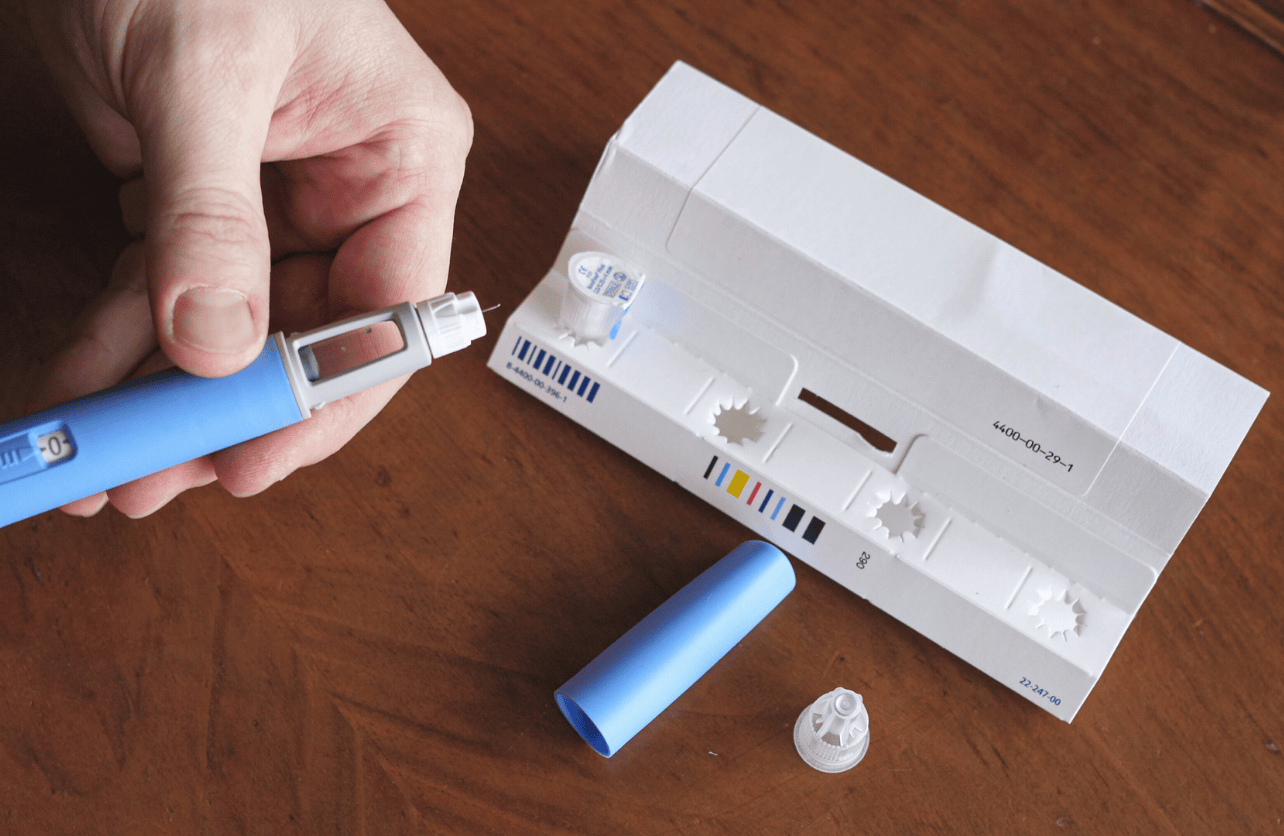What Happens If You Take Too Much Ozempic?

Ozempic (semaglutide) has become a widely recognized name—both in medical circles and among those seeking weight loss or blood sugar control. Initially developed to manage type 2 diabetes, its appetite-suppressing effects and resulting weight loss have made it increasingly popular beyond its original intent.
But as its use has expanded, so have reports of people misusing the drug—taking higher doses than prescribed, using it off-label without medical supervision, or even obtaining it from unofficial sources. So, what actually happens if you take too much Ozempic?
The short answer: it can lead to severe and potentially dangerous side effects, many of which require medical attention. Here’s what you need to know.
The Role of Ozempic—and Why Dosage Matters
Ozempic is a GLP-1 receptor agonist. It works by mimicking the hormone GLP-1, which regulates insulin release, slows gastric emptying, and reduces appetite. The result is improved blood sugar control and often significant weight loss. But because it impacts multiple systems—digestion, metabolism, and the nervous system—taking more than prescribed can seriously overload your body’s ability to cope.
1. Overdose Amplifies Gastrointestinal Side Effects
Even at therapeutic doses, Ozempic commonly causes nausea, vomiting, diarrhea, and stomach discomfort. When someone takes too much, these effects often become severe. People report persistent vomiting, intense abdominal pain, and uncontrollable diarrhea, which can quickly lead to dehydration and electrolyte imbalances.
The symptoms aren’t just uncomfortable—they can be dangerous, especially in individuals with underlying health conditions or poor fluid intake.
2. Hypoglycemia Becomes a Bigger Risk—Especially with Other Meds
On its own, Ozempic rarely causes hypoglycemia (low blood sugar). But in an overdose scenario, or when combined with other glucose-lowering medications like insulin or sulfonylureas, blood sugar can drop too low. Symptoms include:
Dizziness
Sweating
Confusion
Rapid heartbeat
Shakiness
In severe cases: loss of consciousness or seizures
This is a medical emergency and should be treated immediately, usually with fast-acting glucose or emergency care.
3. Dehydration and Kidney Issues
Persistent vomiting and diarrhea can quickly deplete your body of fluids. If left unchecked, this dehydration can put stress on your kidneys, potentially leading to acute kidney injury, especially in older adults or those with pre-existing kidney disease.
In extreme cases, kidney function can decline rapidly, requiring hospitalization for IV fluids and electrolyte correction.
4. Increased Risk of Pancreatitis
Though rare, one of the most serious potential complications of Ozempic—especially at high doses—is pancreatitis, or inflammation of the pancreas. This condition causes severe upper abdominal pain, often radiating to the back, and may come with nausea and vomiting.
Pancreatitis is a known but uncommon risk with GLP-1 medications, and overdosing can increase the chances of it occurring. This is a serious condition that always warrants immediate medical care.
5. Cardiovascular Concerns
Some reports have linked high doses of Ozempic to increased heart rate and potential cardiovascular strain. While not as well documented as gastrointestinal side effects, people with pre-existing heart conditions should be particularly cautious. When taken irresponsibly or without monitoring, the drug’s systemic effects can compound underlying heart issues.
6. Real-Life Overdose Cases Highlight the Danger
Several public figures have openly discussed their adverse experiences with Ozempic overdose. Model Lottie Moss was hospitalized after taking too much, experiencing a seizure and severe dehydration. In another case, reality star Aisleyne Horgan-Wallace described temporary vision loss and days of violent vomiting after unknowingly using counterfeit Ozempic.
These stories underscore the risks of misusing semaglutide—and the importance of sourcing it safely and using it under professional supervision.
7. What to Do If You’ve Taken Too Much
If you suspect you’ve taken more Ozempic than prescribed—whether by accident or intention—don’t wait for symptoms to escalate. Seek medical advice immediately. Treatment often involves managing dehydration, monitoring blood sugar, and controlling severe nausea or vomiting.
It’s also essential to avoid taking additional doses “to catch up” or experimenting with higher doses for faster weight loss. The drug works gradually, and ramping up too quickly almost always leads to trouble.
Final Thoughts
While Ozempic can be an effective and transformative tool for managing diabetes and supporting weight loss, taking too much is dangerous. Overdose can result in serious complications ranging from gastrointestinal distress to pancreatitis, hypoglycemia, kidney problems, and even neurological symptoms like seizures.
If you’re using Ozempic, stick to your prescribed dose and schedule. Don’t adjust your dose without consulting a healthcare provider, and never obtain the drug from unverified sources. Used properly, Ozempic can be safe and effective—but when misused, it can quickly become a serious health risk.
Building a Stronger You
Supplement Institute is the fruit of extensive online publishing experience, spanning the breadth of SEO strategies to the nuances of paid advertisements. Our journey, marked by significant achievements and learning moments, inspires our core mission: to empower our readers with an abundance of information. By sharing insights and key learnings, we aim to provide you with the knowledge needed to navigate the complex world of supplements, helping you make well-informed decisions for your health and well-being. Welcome to Supplement Institute, where information is your greatest supplement.